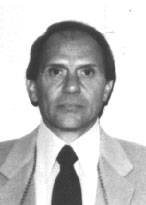Salvatore Avellino
| Salvatore Avellino, Jr. | |
|---|---|

Salvatore Avellino in a mid-1980s FBI mugshot
|
|
| Born |
November 19, 1935 St. James, New York |
| Other names | Sal |
Salvatore Avellino, Jr. (born November 19, 1935 St. James, New York), also known as "Sal" is a mobster and former caporegime in the Lucchese crime family who was involved in labor racketeering in the garbage and waste management industry in Long Island, New York. Avellino also served as right-hand man and chauffeur to boss Anthony "Tony Ducks" Corallo.
Over the years, Avellino and his relatives established a stranglehold on the waste hauling business on Long Island. To gather evidence against Avellino, members of the New York State Organized Crime Task Force (OCTF) used undercover informant Robert Kubecka, the owner of a Suffolk County, New York garbage hauling business. Since the 1970s, Kubecka had refused to participate with the mob control of the waste hauling business and had suffered extensive harassment as a result. In 1982, Kubecka, agreed to wear a surveillance device during meetings with the mobsters. Although Kubecka was unable to get close to Avellino himself, the information Kubecka gathered eventually persuaded a judge to allow a wire tap on Avellino's home phone in Nissequogue, New York. The home phone tap was also disappointing to the agents; however, it did reveal that Avellino was driving boss Anthony Corallo around all day in Avellino's car.
In 1983, members of the New York State Organized Crime Task Force (OCTF) installed an electronic surveillance device inside the dashboard on Avellino's Jaguar while he and his wife were at a dinner dance. Agents then listened to many conversations between Corallo, Avellino, and other mobsters as they drove around the city. Avellino was very curious and was constantly asking questions about the operation of the family and the Mafia Commission. From these recorded conversations, OCTF learned the Commission's internal structure, history, and relations with other crime families. These conversations were shared with federal prosecutors and provided them with invaluable evidence against Corallo and other family bosses in the 1986 Mafia Commission trial.
...
Wikipedia
